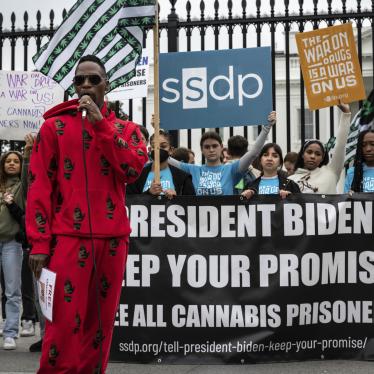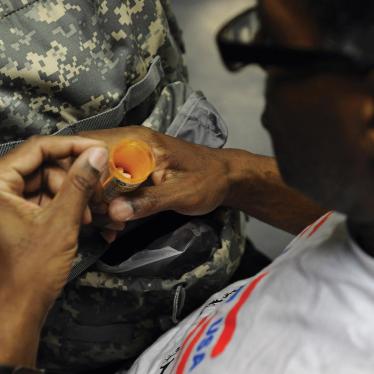Dear Ambassador Zoellick:
The negotiations surrounding the United States-Morocco Free Trade Agreement (FTA) provide an opportunity for the United States to live up to its stated commitment to address the immense suffering caused by the global HIV/AIDS pandemic. We urge you not to use these negotiations as an occasion to limit Morocco’s ability to use existing global trade rules to expand access to HIV/AIDS medicines.
Dear Ambassador Zoellick:
The negotiations surrounding the United States-Morocco Free Trade Agreement (FTA) provide an opportunity for the United States to live up to its stated commitment to address the immense suffering caused by the global HIV/AIDS pandemic. We urge you not to use these negotiations as an occasion to limit Morocco’s ability to use existing global trade rules to expand access to HIV/AIDS medicines.
At the 2001 World Trade Organization (WTO) ministerial meeting in Doha, Qatar, the United States affirmed the right of WTO members to use “to the full” provisions of the WTO Agreement on Trade-Related Aspects of Intellectual Property Rights (TRIPS Agreement) that provide flexibility for the purpose of promoting access to essential medicines. These provisions include the right to grant compulsory licenses for the production of generic medicines, the right to determine what constitutes a national emergency, and the freedom to establish a national regime for the exhaustion of patents (Doha Declaration, article 5). The Declaration is clear that these flexibilities are what enable countries like Morocco, which the national government estimates is home to at least 16,000 people infected with HIV, to address urgent threats to public health.
Human Rights Watch is very concerned that the U.S.-Morocco FTA will make it impossible for Morocco to use the flexibilities contained in TRIPS “to the full.” There are credible reports that the United States is seeking an extension to the twenty-year patent term required by the TRIPS, as well as exclusive rights for drug companies to pharmaceutical test data. Each of these provisions would diminish Morocco’s ability to hasten market entry of affordable generic medicines. It is hypocritical for the United States as a member of the WTO to pursue bilateral trade policies that undercut precisely those flexibilities whose full use the Doha Declaration encourages.
We are also concerned about the exclusion of civil society organizations from negotiations surrounding the U.S.-Morocco FTA. The text of the agreement has not been made publicly available, unlike the text of other agreements such as the Free Trade Area of the Americas (FTAA). When representatives of Moroccan civil society organizations protested the agreement in Rabat on January 28, 2004, they were forcibly dispersed by Moroccan police using batons, resulting in the injury of filmmaker Nabil Ayush and the president of the Moroccan Association for Human Rights, Abd al-Hamid Amine. Given the United States’ clear recognition in the Doha Declaration of the potential impact of trade agreements on public health, we urge you to make clear to the Moroccan government U.S. dismay regarding the violent dispersal of Moroccans protesting the U.S.-Morocco FTA. We also urge you to release the draft text of the agreement without delay.
The Doha Declaration has been affirmed by a broad global consensus, including by the United Nations Commission on Human Rights, the World Health Organization, and the United States 2002 Trade Promotion Authority Act. As evidenced by negotiations surrounding the Free Trade Area of the Americas, the Central America Free Trade Agreement and other agreements, however, the United States appears to be alone in using its trade authority to undermine the achievements made at Doha. We urge that you refrain from negotiating anti-Doha, TRIPS-plus provisions in the U.S.-Morocco Free Trade Agreement, and instead promote maximum flexibility for promoting access to essential medicines in national patent regimes.
Sincerely,
|
Joanne Csete Executive Director HIV/AIDS Program |
Joe Stork Acting Executive Director Middle East and North Africa Division |
Cc: Mr. Taieb El Fassi El Fihri, Delegate for Foreign Affairs and Cooperation, Min. Of Foreign Affairs, the Kingdom of Morocco
Cc: Mr. Biadi Ellah, Min. of Health, the Kingdom of Morocco








